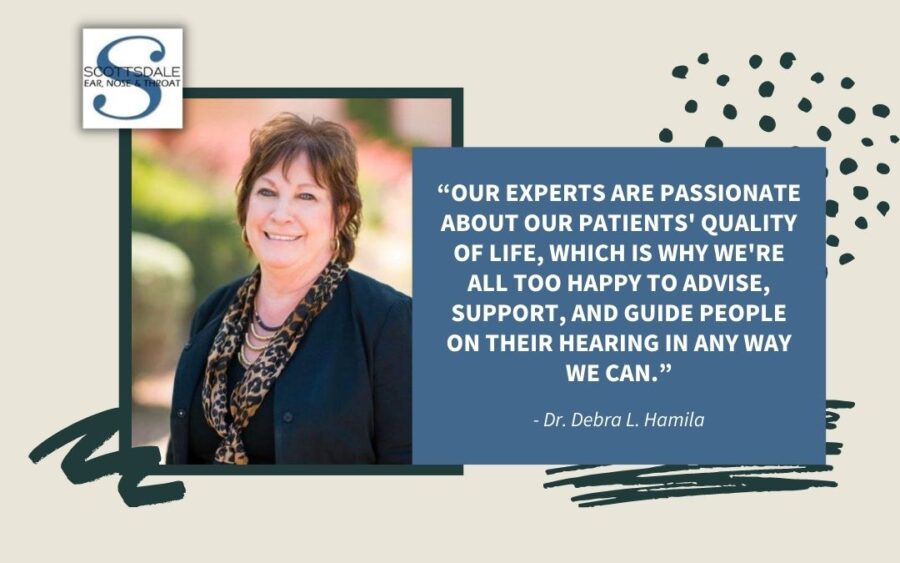You’ve made it through surgery to treat your head and neck cancer. But now that’s behind you, you are faced with the physical changes that surgery leaves behind. Dealing with them can feel overwhelming.
At Scottsdale Ear, Nose & Throat, we want you to know that are not alone. There is support and advice available from your healthcare team and numerous charities, as well as right here in this blog. We’ll cover some of the changes you’re experiencing and how to handle them.
Use a scarf
If you are feeling self-conscious of the scarring, the quickest and simplest way to cover the area is by using a scarf, so make sure you have a few different types ready before you go into surgery.
Camouflage make up
It isn’t always easy to wear a scarf; perhaps it’s hot and a scarf would stick out? An alternative is using some special skin-colored camouflage make up to cover the area. In fact, there are head and neck cancer nurses who are skilled at using this special make up.
Scar reduction ointments
There are a range of scar reduction ointments available to speed along the healing process. However, there is no need to blow the budget; a simple skin moisturiser will help keep the skin supple and soft as it heals.
Speak with a trained nurse
Your nurses will be trained with all sorts of tips and tricks to deal with what happens after neck surgery and can really settle a lot of nerves. They will put your mind at ease by talking through the process and offer comforting knowledge gained through their experience.
Speak to others (support groups)
A great thing to do is to talk to other patients who have been in your shoes. They may have helpful coping strategies. But sometimes just being able to vent your feelings to someone who truly understands is enough to make you feel better.
Eating
Surgery can change the way the muscles of your mouth work, making eating and drinking more difficult. Sometimes this is because of swelling, which eases off over time but sometimes things never quite get back to normal.
If you’re struggling with eating, perhaps you can’t manage certain foods or it takes a lot longer to get through a meal, talk to your healthcare team. They’ll monitor your progress, sometimes carrying out swallowing tests using special x-rays and can provide exercises and techniques to improve your ability to eat. Also, talk to your family and friends; they can help you through any embarrassment you may feel about eating in front of them.
Give it time
Changes to your physical appearance can have a negative impact on how you feel about your body and your overall confidence. However, be aware that both the physical and mental issues will begin to disappear much more quickly than you might imagine. You’ll actually be surprised at how quickly the bruising goes down and the scarring subsequently heals.
At Scottsdale Ear, Nose & Throat we’ve seen many patients through the challenges of head and neck surgery. So trust us when we say that with these coping strategies in place getting back to your life post-surgery will change from seemingly impossible to entirely inevitable.



